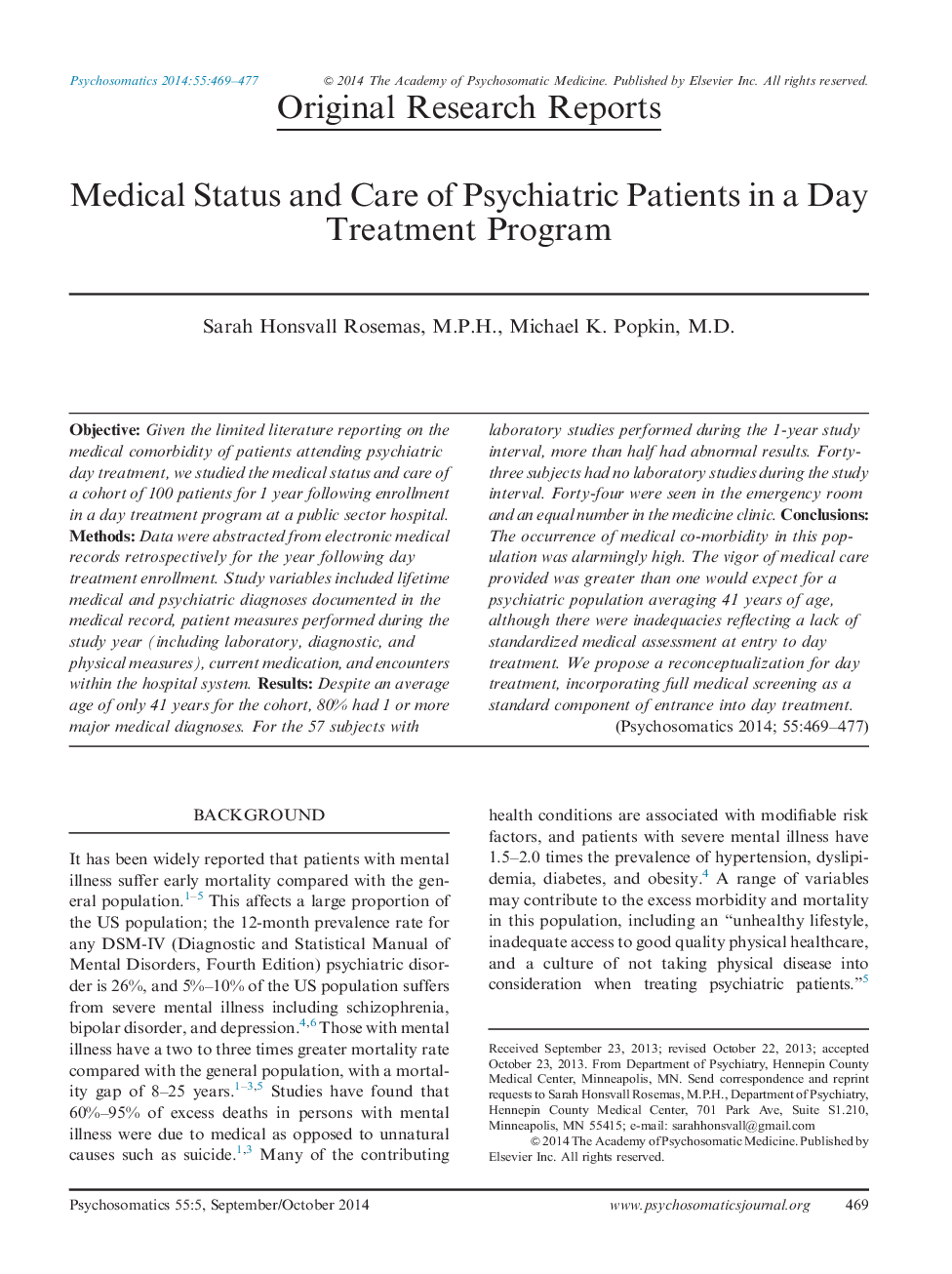| Article ID | Journal | Published Year | Pages | File Type |
|---|---|---|---|---|
| 337875 | Psychosomatics | 2014 | 9 Pages |
ObjectiveGiven the limited literature reporting on the medical comorbidity of patients attending psychiatric day treatment, we studied the medical status and care of a cohort of 100 patients for 1 year following enrollment in a day treatment program at a public sector hospital.MethodsData were abstracted from electronic medical records retrospectively for the year following day treatment enrollment. Study variables included lifetime medical and psychiatric diagnoses documented in the medical record, patient measures performed during the study year (including laboratory, diagnostic, and physical measures), current medication, and encounters within the hospital system.ResultsDespite an average age of only 41 years for the cohort, 80% had 1 or more major medical diagnoses. For the 57 subjects with laboratory studies performed during the 1-year study interval, more than half had abnormal results. Forty-three subjects had no laboratory studies during the study interval. Forty-four were seen in the emergency room and an equal number in the medicine clinic.ConclusionsThe occurrence of medical co-morbidity in this population was alarmingly high. The vigor of medical care provided was greater than one would expect for a psychiatric population averaging 41 years of age, although there were inadequacies reflecting a lack of standardized medical assessment at entry to day treatment. We propose a reconceptualization for day treatment, incorporating full medical screening as a standard component of entrance into day treatment.
